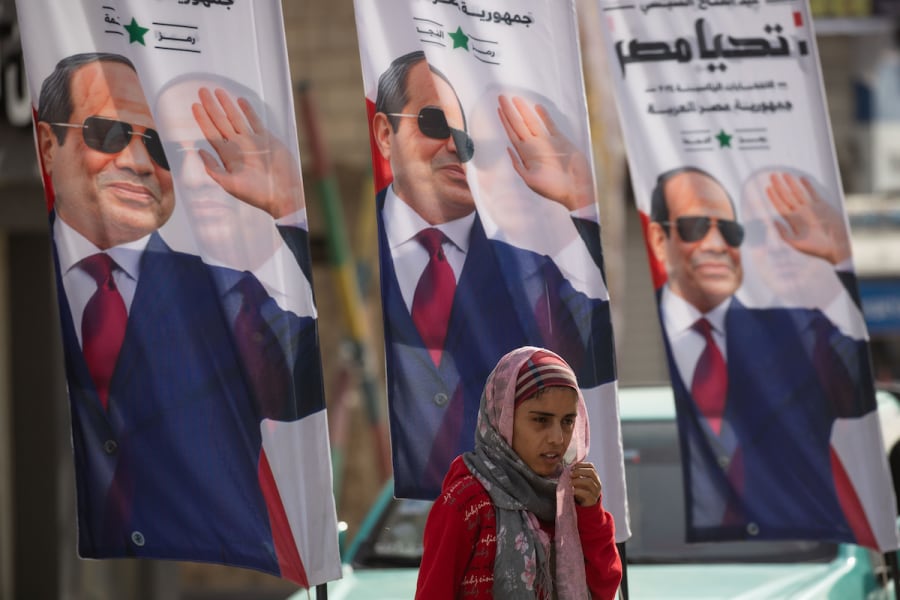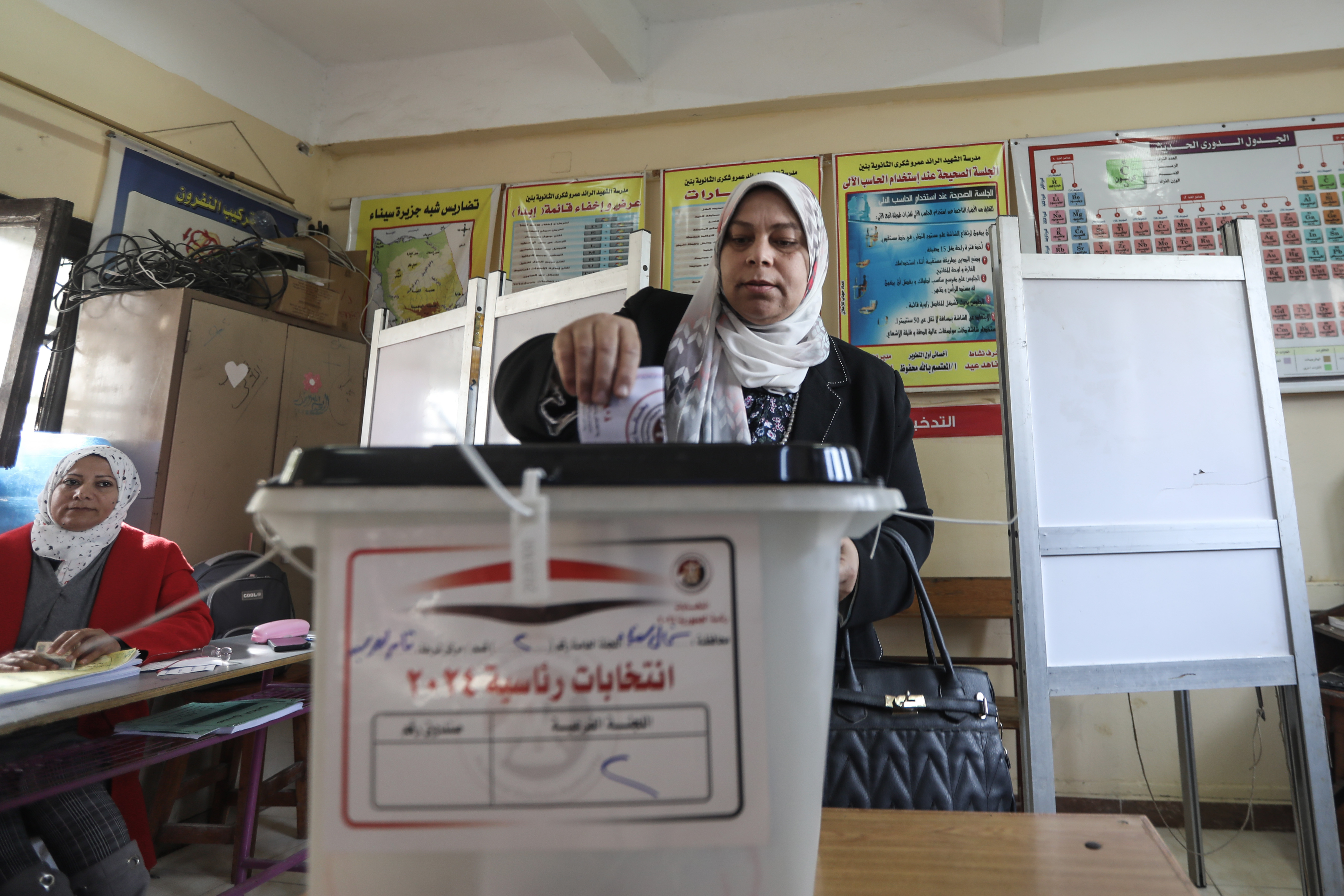Egyptians voting in presidential polls overshadowed by Gaza war

Cairo – Egyptians on Sunday began casting their ballots in a presidential election overshadowed by the war in Gaza and a severe domestic economic crisis.
The election is taking place over three days, until Tuesday, with incumbent President Abdel Fattah el-Sisi widely expected to win a third term in office.
El-Sisi, who has ruled Egypt since 2014, voted at a polling station in Heliopolis in east Cairo, state media reported. He made no comments.
Despite growing discontent with soaring inflation at home, el-Sisi has regained some popular support as many Egyptians agree with his warnings against the feared displacement of Gazans to neighboring Egypt amid the Israeli operation.
He says any such migration would undermine the Palestinian cause.
Since the outbreak of the Israel-Hamas war on Oct. 7, el-Sisi has also warned that displacing Palestinians would turn Egypt's Sinai Peninsula into a launchpad for attacks against Israel.
Several polling stations in the Egyptian capital were decorated with the colors of the Egyptian flag, as patriotic music was broadcast outside.

Pro-government media showed people outside the polls in several parts of Egypt, the Arab world’s most populous country, waving the Egyptian flag.
The electoral commission said at midday that the elections were going smoothly and there was significant voter turnout in the early hours of the polling, although it did not give a specific figure.
Besides el-Sisi, three other candidates are running for office.
They are Farid Zahran, a leftist politician heading the Social Democratic Party; Abdel-Sanad Yamama, the head of the liberal Wafd party; and Hazem Omar, the founder of the liberal People's Republican Party.
“I tell people to participate," Omar said after voting in the New Cairo suburb.
"I am happy with what I have seen outside the polling station," he said, referring to the number of voters.
"I thank anyone who votes for me and ask people, those who support or oppose me, to participate, cast their ballots and choose."
Some voiced enthusiasm about voting.
"I came for our country and el-Sisi. I voted for him twice before and will vote for a third time," Afaf Abdo, a mother of four children, said at a polling station in New Cairo.
El-Sisi, an ex-army chief, did not give any campaign interviews, but his diplomatic engagements regarding Gaza have largely served that purpose.
People watched his press conferences, alongside foreign dignities, as the war in Gaza near Egypt's north-eastern border took the spotlight away from domestic problems, including a lack of freedom of expression.
His loyalists see him as a guarantee of stability in Egypt amid regional turmoil.
Giant billboards with el-Sisi's picture can be seen across Cairo, dwarfing those of the three other contenders.
Polling stations across Egypt opened at 9 a.m. and the balloting is to run for 12 hours.
Some 67 million Egyptians are eligible to vote, according to Egyptian media.
Final official results are expected to be announced on Dec. 18.
El-Sisi was re-elected in 2018, and in both times he won in a landslide victory.
Authorities are worried a low turnout could undermine his legitimacy during the next six-year term.
Voter turnout stood at 40% in 2018, down from 47.5% in 2014, as many felt the results were pre-determined.
In recent weeks, the government has been trying to rally voters through television advertisements, talk shows and patriotic broadcasts.
In 2013, the army, led by el-Sisi, deposed Mohammed Morsi, Egypt's democratically-elected but divisive Islamist president.
Morsi was Egypt's first president after the 2011 uprising and the only candidate who had no military background.
Under el-Sisi, thousands of secular activists and Islamists have been imprisoned or forced into exile, and the media scene has been mostly controlled by el-Sisi loyalists.
In recent months, the government has released dozens of detained dissidents.














